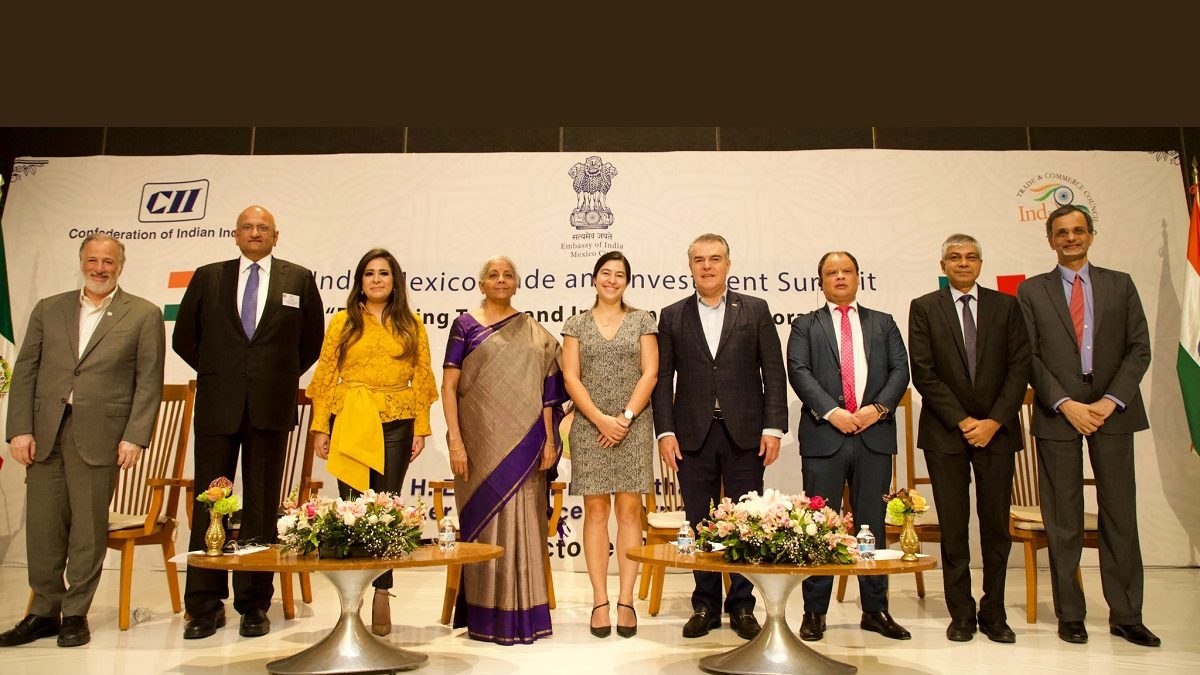India and Mexico are exploring enhanced economic ties, with a particular focus on leveraging technology and innovation to boost mutual growth. Finance Minister Nirmala Sitharaman’s recent visit to Mexico City underscored the potential for a robust partnership, highlighting several key areas of cooperation. Discussions included sharing India’s experience in digital transformation, promoting collaboration in the startup ecosystem, and exploring investment opportunities in various sectors. This collaborative approach promises to unlock significant economic benefits for both nations, fostering growth and innovation in the years to come.
Strengthening India-Mexico Economic Ties Through Technological Collaboration
Leveraging India’s Digital Transformation Expertise
India’s remarkable progress in digital infrastructure and financial inclusion offers valuable lessons for Mexico. Sitharaman highlighted India’s success in reducing regulatory burdens and implementing initiatives like the Unified Payments Interface (UPI) and India Stack, which have revolutionized digital payments and financial services. Sharing this expertise with Mexico could significantly accelerate its own digital transformation efforts, leading to greater efficiency and financial inclusion within its own population. The success of UPI, with its 87% adoption rate in Fintech, showcases India’s strength in fostering technological innovation. This provides a compelling model for Mexico to adapt and implement within their own financial ecosystems.
Fostering Innovation Through Startup Partnerships
A key component of the proposed collaboration centers on fostering a mutually beneficial partnership between the Indian and Mexican startup ecosystems. Sitharaman emphasized the innovative potential of young entrepreneurs and proposed an exchange of ideas and collaboration to drive growth in both countries. This synergy would involve sharing best practices, co-creating innovative solutions, and potentially attracting investments in promising startups from both nations. The combined strength of both nations’ young entrepreneurs could spark innovative breakthroughs and create substantial economic opportunities. Support for young entrepreneurs, alongside experience-sharing, presents a potent engine for future economic development.
Expanding Investment and Trade Opportunities
Focus on Key Sectors: Pharma, Automotive, and Electronics
The India-Mexico Trade and Investment Summit provided a platform to explore specific areas of collaboration. Sitharaman highlighted the immense potential for growth and investment in sectors such as pharmaceuticals and the automotive industry. Joint efforts to enhance manufacturing capabilities, especially in critical components like semiconductors and printed circuit boards, will increase resilience and reduce dependence on global supply chain vulnerabilities. Investment incentives within electronics manufacturing and R&D would facilitate greater market penetration and mutually beneficial trade expansion. Collaboration on emerging technologies such as 5G, AI and consumer electronics would greatly aid development within both nations and boost innovation, attracting further foreign direct investment.
Exploring Investment in GIFT-IFSC and Other Sectors
Further collaboration opportunities were discussed, specifically attracting investment from Mexico in India’s Gujarat International Finance Tec-City (GIFT-IFSC). This includes possibilities in banking, fund management, global in-house capability centers, aircraft and ship leasing, and even establishing foreign universities. The creation of joint ventures and collaborative investments is key to realizing the potential of a stronger bilateral trade partnership. By focusing on specific projects within India and Mexico, a solid base for long-term partnership can be built.
Building Resilience Through Diversification and Strategic Partnerships
Strengthening Supply Chains and Reducing Vulnerabilities
The partnership between India and Mexico aims to promote greater diversification in key sectors and enhance resilience against global supply chain disruptions. By collaborating on critical components like semiconductors and other high-tech electronics, both countries can reduce reliance on single suppliers and enhance their manufacturing capabilities. This shared commitment to strategic resilience will make both nations better positioned in navigating global economic uncertainties. Furthermore, the combination of strengths would improve security, self-sufficiency, and economic stability within both countries.
Promoting Political and Economic Stability
India’s emphasis on political stability, skilled workforce, and growing infrastructure provides a very stable ground for Mexico to invest and grow. The parallels drawn by Sitharaman regarding basic minimum provision – like food security, housing, electricity and gas, financial inclusion and income supplementation—show a shared understanding of developmental needs, and could lead to greater information exchange and strategy collaboration for sustainable growth. India and Mexico demonstrate political and economic strengths, positioning both as attractive partners. The collaboration could promote both economic growth and create shared opportunities, benefiting people and businesses across both countries.
Take Away Points:
- India and Mexico are actively pursuing deeper economic ties through various initiatives focused on technology, innovation, and investment.
- Collaboration in digital transformation, startup ecosystems, and key sectors like pharma and automotive are highlighted for potential benefits.
- The partnership aims to enhance resilience by diversifying supply chains and fostering mutual growth.
- Specific investment opportunities in GIFT-IFSC and other areas have been discussed.
- The collaboration aims to leverage the strengths of both countries, promoting mutual economic prosperity and development.




